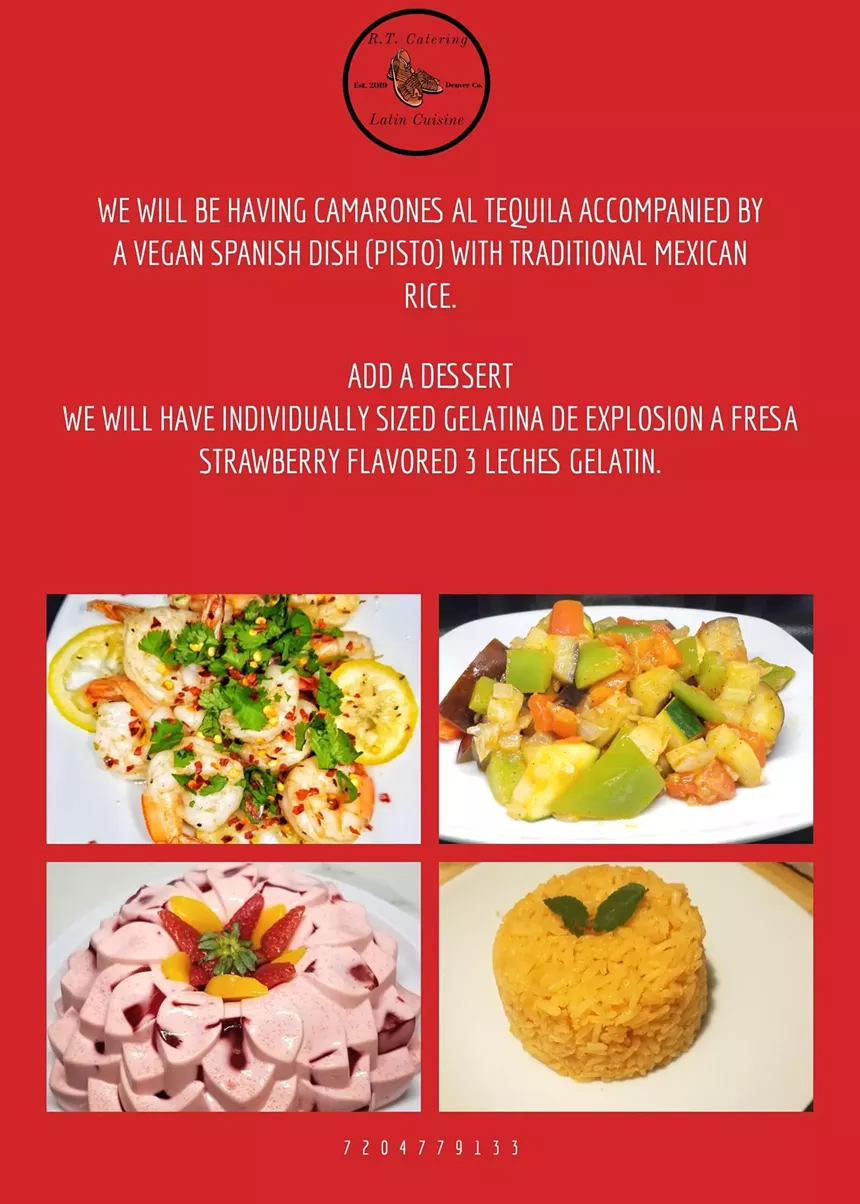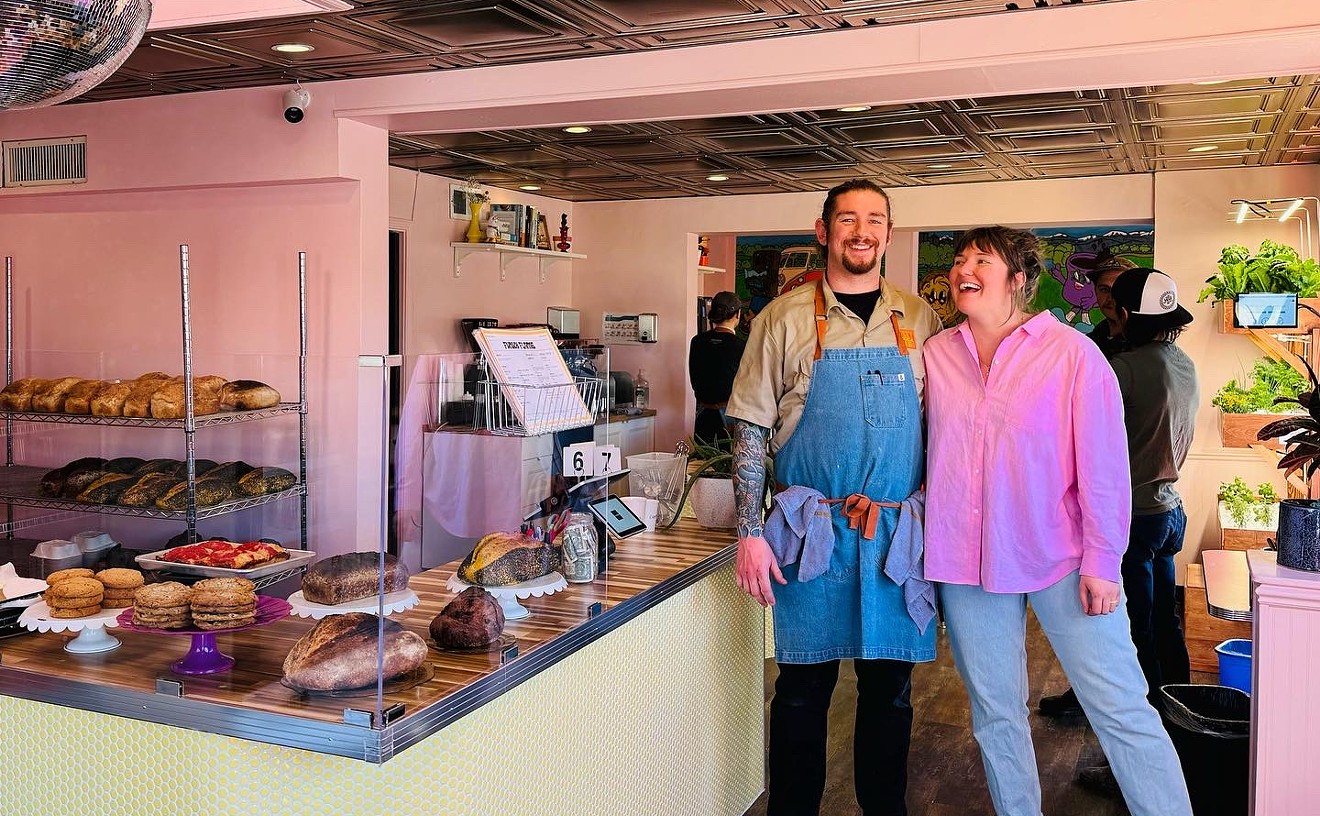They are making the dinner as part of Solidarity Meals, a program intended to help immigrant families through the increased hardships brought by COVID-19. Every few weeks, a different family sells food based on recipes from their home country to support legal costs and to teach about their culture through its culinary heritage.
Each family participating in Solidarity Meals has a different story to tell about their pursuit of documented status. Tabulo Baez is currently protected by the Deferred Action for Children Arrivals (DACA) program, but the process for applying for a green card has already taken three years, and so far, she says, “we’ve paid almost fifteen grand” for legal costs. After this payment, they expect to be done with the paperwork and will then “wait for, hopefully, good news,” she continues.
Immigrants and DACA recipients like Tabulo Baez have to weigh such legal costs against their regular monthly bills. This has become increasingly difficult during the pandemic. Many immigrant workers, whether documented or not, have become unemployed but have received little to no government aid. Those without Social Security numbers (even if they have tax identification numbers for filing taxes) didn’t qualify for the spring stimulus check, and they continue to be unable to receive unemployment benefits. But they still need to pay for food, housing and legal costs.
This is why Tabulo Baez's mother, Jeanette Vizguerra, whose own battles against deportation have made national news, began Solidarity Meals this spring through Sanctuary4All, a nonprofit she started in 2019. Vizguerra, a longtime immigrant-rights activist, sees Solidarity Meals as a way to foster mutual aid in the community and for immigrant families to support themselves and each other. Such aid is central to the mission of Sanctuary4All, which describes itself as “a community-based, grassroots organization of impacted families and allies, dedicated to supporting and advocating for the immigrant community of Colorado.” The group also specifically helps undocumented immigrants who take sanctuary in churches to avoid deportation while pursuing legal status.
Vizguerra, who has lived in the United States since 1997, has been outspoken in her advocacy for immigrants trying to establish permanent legal residence. Seeking sanctuary means having “the courage to face our situations,” Vizguerra said in a 2017 interview on Code Switch, a National Public Radio podcast on race and culture, adding “I control my own life, my future."

A few of R.T. Catering's dishes will be served for the next Solidarity Meals fundraiser.
Courtesy of R.T. Catering
That sense of agency is amplified in Solidarity Meals, as families have a mechanism to raise their own funds. But the program is also meant to tell a broader story. Selling certain dishes means “giving a really good taste of what [the food] means to us,” says Tabulo Baez, adding that cooking allows families to both “keep up the tradition and break the tradition.”
Families keep the tradition by sharing dishes that were taught to them by family members in their home countries and regions. Last month, Vizguerra made tamales to raise funds for Kesha Davalos-Grijalva, whose husband, Pablo, has been detained by U.S. Immigration and Customs Enforcement since January. She used a recipe for tamales specific to Jalisco, Mexico, taught to her by her mother and grandmother.
“Some people use leaves and paper” to wrap the tamales, Vizguerra explains, but in Jalisco, people only use leaves. And although she grew up in Mexico City, she still makes Jalisco-style tamales because that’s how she was taught. Vizguerra says she always thinks of her mom, who passed away in 2015, when she makes tamales, and the influence of her mom and grandmother is strong in her other cooking, as well.
Still, there is a break from tradition when food is shared with others of different cultures. People bring different perspectives and palates and expectations to food, and chefs adapt to try to create meals that satisfy everyone.
In some ways, that’s the drive behind the food Tania and Ricardo will be serving. Their shrimp, rice, pisto (a vegan Spanish dish made with stewed vegetables such as eggplant, tomato and squash) and strawberry gelatina (a gelatin-based fruit mold) are menu items from their catering company, R.T. Catering, which specializes in Latin American and Spanish food.
The couple is excited to have a chance to highlight this sampler of the dishes they serve. Saturday’s meal costs $14, and the gelatin dessert is an additional $4. You can order a meal online on the Solidarity Meals order form, and then pick up your food between 3 and 5 p.m. on Saturday at the First Unitarian Church of Denver at 1400 Lafayette Street.











